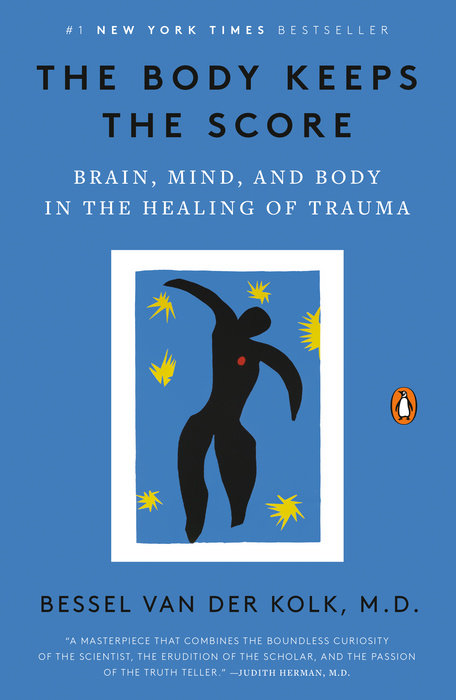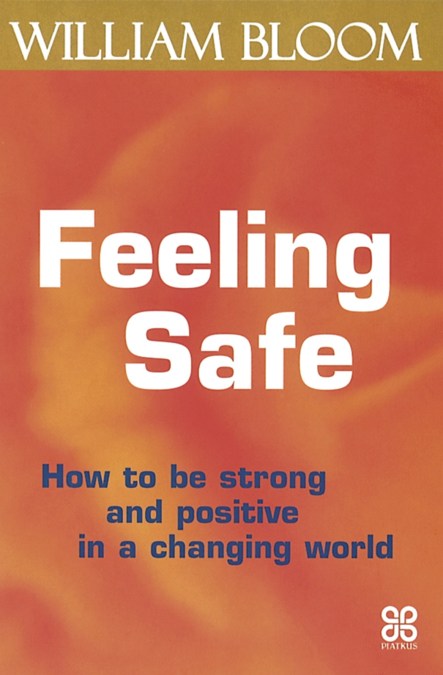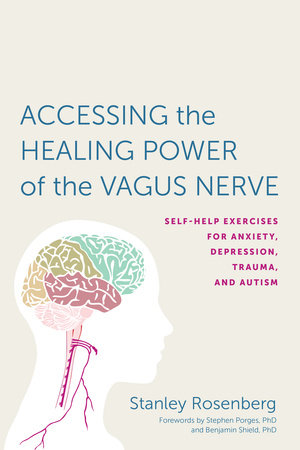Brain Mechanisms that Give the Iceman Unusual Resistance to Cold
By Wayne State University—Office of the Vice President for Research — 2018
Dutch adventurer Wim Hof is known as ‘The Iceman’ for good reason. Hof established several world records for prolonged resistance to cold exposure, an ability he attributes to a self-developed set of techniques of breathing and meditation—known as the Wim Hof Method. Yet, how his brain responds during cold exposure and what brain mechanisms may endow him with this resistance have not been studied—until now.
YOU MIGHT ALSO LIKE
CLEAR ALL
BY TOPIC
BY TEACHER
BY TYPE
FILTER

TOPIC
- Talk Therapy (77)
- Self-Mastery (55)
- Physical Health (51)
- Anxiety (45)
- Depression (38)
- Self-Healing (38)
- Stress (34)
- Athlete Well-Being (32)
- Honoring Emotion (32)
- Stress Management (32)
- Self-Development (31)
- Neuroplasticity (27)
- Brain Health (26)
- Habit Formation (26)
- Meditation (26)
- Mindfulness (25)
- Self-Care (25)
- Trauma Healing (25)
- Self-Discovery (24)
- Chronic Health Conditions (23)
- Chronic Pain (23)
- Well-Being (23)
- Awareness (22)
- Resilience (20)
- Self-Reflection Practices (19)
- Parenting (18)
- Trauma (18)
- Cancer (17)
- The Feldenkrais Method (17)
- Goal Setting (16)
- Self-Limiting Beliefs (16)
- Anger (15)
- Consciousness (15)
- Human Potential (15)
- Relationship Challenges (15)
- Transformation (15)
- Autoimmune Disease (14)
- BIPOC Well-Being (14)
- Emotional Intelligence (EQ) (14)
- Happiness (14)
- Imagination and Creativity (14)
- Mindfulness Practices (14)
- PTSD (14)
- Self-Esteem (14)
- Diet and Nutrition (13)
- Fear (13)
- Finding Meaning (13)
- Healing Approaches (13)
- Science and Spirituality (13)
- Self-Love (13)
- Addiction (12)
- Aging (12)
- Child’s Emotional Growth (12)
- Empowerment (12)
- Integrative Medicine (12)
- Psychology (12)
- Romantic Relationships (12)
- Self-Compassion (12)
- Somatic Practices (12)
- Spiritual Growth (12)
- Breathwork (11)
- Communication Skills (11)
- Exercise (11)
- Habits of Mind (11)
- Motivation (11)
- Negative Self-Talk (11)
- Positive Thinking (11)
- Search for Purpose (11)
- Authenticity (10)
- Black Well-Being (10)
- Embodiment (10)
- Illness and Injury (10)
- Inner Peace (10)
- Self-Control (10)
- Shame (10)
- Somatic Experiencing (10)
- Visualization (10)
- Women’s Well-Being (10)
- Altered States (9)
- Anger Management (9)
- Child’s Trauma (9)
- Courage (9)
- Criticism and Rejection (9)
- Entrepreneurship (9)
- Identity (9)
- Life Challenges (9)
- Living with Illness (9)
- Memory (9)
- Mental Health Challenges (9)
- Peak Performance (9)
- Perception (9)
- Presence (9)
- Self-Acceptance (9)
- Self-Realization (9)
- Children’s Well-Being (8)
- Chronic Anxiety (8)
- Cognition (8)
- Confidence (8)
- Dementia (8)
- Dysfunctional Childhood (8)
- Grief (8)
- Kindness (8)
- Longevity (8)
- Neurodiversity (8)
- Self-Actualization (8)
- Self-Worth (8)
- Setting Limits and Boundaries (8)
- Spirituality and Health (8)
- Suicide (8)
- Vulnerability (8)
- Willpower (8)
- Addiction Recovery (7)
- Buddhism (7)
- Compassion (7)
- Focus (7)
- Growth Mindset (7)
- Inner Strengths (7)
- Mindfulness Meditation (7)
- Neuropsychology (7)
- Psychedelic Research (7)
- Spiritual Healing (7)
- Yoga (7)
- Body Image (6)
- Body Positivity (6)
- Failure (6)
- Healthy Eating (6)
- Joy (6)
- Love (6)
- Polyvagal Theory (6)
- Positive Self-Talk (6)
- Self-Reliance (6)
- Sex (6)
- Spiritual Awakening (6)
- Suffering (6)
- Young Adult Well-Being (6)
- ADD/ADHD (5)
- Clinical Depression (5)
- Connection (5)
- Connection with Nature (5)
- Curiosity (5)
- Decision Making (5)
- Energy Healing (5)
- Epigenetics (5)
- Fellowship and Community (5)
- Guilt (5)
- Inner Child (5)
- Inner Life (5)
- Intention (5)
- Intimacy (5)
- Psilocybin (5)
- Quantum Physics (5)
- Self-Reckoning (5)
- Speaking Your Truth (5)
- Spiritual Life (5)
- Trauma-Informed Therapy (5)
- Asking for Help (4)
- Autism (4)
- Belonging (4)
- Chronic Fatigue (4)
- Community Healing (4)
- Creative Well-Being (4)
- Disconnection (4)
- Eating Disorders (4)
- Family Dynamics (4)
- Female Empowerment (4)
- Global Challenges (4)
- Gratitude (4)
- Guided Meditation (4)
- Letting Go (4)
- Loneliness (4)
- LSD (4)
- Marriage (4)
- Nutritional Medicine (4)
- Optimism (4)
- Past Lives and Reincarnation (4)
- Performance Anxiety (4)
- Racial Healing (4)
- Religious Experience (4)
- Self-Pressure (4)
- Soul Mission (4)
- Tibetan Buddhism (4)
- Values (4)
- Veteran Well-Being (4)
- Acceptance (3)
- Accepting Love (3)
- Activism/Service (3)
- Adaptability (3)
- Afterlife (3)
- Alcohol Addiction (3)
- Astral Projection (3)
- Attachment Theory (3)
- Ayurveda (3)
- Biohacking (3)
- Bodywork (3)
- Burnout (3)
- Child’s ADD/ADHD (3)
- Cognitive Behavioral Therapy (3)
- Cognitive Psychology (3)
- Digital Life (3)
- Divorce and Breakup (3)
- Empathy (3)
- Endurance (3)
- Generosity (3)
- Genetics (3)
- Intergenerational Trauma (3)
- Jealousy/Envy (3)
- Journaling (3)
- Jungian Analysis (3)
- Lifestyle Medicine (3)
- Managing Energy (3)
- Memoir (3)
- Military to Civilian Re-entry (3)
- Movement Meditation (3)
- Near-Death Experience (3)
- Offering Support to Others (3)
- Parapsychology (3)
- Passion (3)
- Play (3)
- Problem Solving (3)
- Psychedelic-Assisted Therapy (3)
- Psychoanalysis (3)
- Psychology and Spirituality (3)
- Rest (3)
- Self-Expression (3)
- Shadow (3)
- Situational Depression (3)
- Sleep (3)
- Social Anxiety (3)
- Spiritual Development (3)
- Stoicism (3)
- Transcendent Experience (3)
- Wholeness (3)
- Work-Life Balance (3)
- Abandonment (2)
- Biofeedback (2)
- Body Mapping (2)
- Cannabis/CBD (2)
- Caregiver Well-Being (2)
- Changes in Libido (2)
- Child’s Anxiety (2)
- Child’s Challenging Behavior (2)
- Codependency (2)
- Collective Trauma (2)
- Competition (2)
- Disabled Well-Being (2)
- Doubt (2)
- Dreamwork (2)
- Ego (2)
- Enlightenment (2)
- Facing Own Death (2)
- Fatigue (2)
- Forest Bathing (2)
- Forgiveness (2)
- Friendship (2)
- Functional Medicine (2)
- Holism (2)
- Hypnosis (2)
- Inflammation (2)
- Integrity (2)
- Interdependence (2)
- Leadership (2)
- Learning Styles (2)
- LGBTQIA Well-Being (2)
- Light Therapy (2)
- Masculine/Feminine Dynamics (2)
- MDMA (2)
- OCD (2)
- Oneness (2)
- Othering (2)
- Panic Attacks (2)
- Physical Therapy (2)
- Post-Traumatic Growth (2)
- Prayer (2)
- Productivity (2)
- Psychological Approaches (2)
- Race and Gender (2)
- Racial Identity (2)
- Racism (2)
- Relationship with Time (2)
- Rolfing (2)
- Self-Discipline (2)
- Sexual Health (2)
- Sexuality (2)
- Social Psychology (2)
- Synchronicity (2)
- Synesthesia (2)
- The Unconscious (2)
- Time Management (2)
- Toxic Relationships (2)
- Trust (2)
- Visions and Hallucinations (2)
- Weight Concerns (2)
- Work Relationships (2)
- AAPI Well-Being (1)
- Academic Struggles (1)
- Access to Education (1)
- Acupressure (1)
- Affirmations (1)
- Alexander Technique (1)
- Anorexia (1)
- Archetypes (1)
- Art Therapy (1)
- Awe (1)
- Building Character (1)
- Building Culture (1)
- Chakras (1)
- Challenges with Teens (1)
- Child’s Autism (1)
- Comparing Belief Traditions (1)
- Compassion Meditation (1)
- Conscious Evolution (1)
- Cross-Cultural Dynamics (1)
- Dark Night of the Soul (1)
- Death and Dying (1)
- Despair (1)
- Domestic Abuse (1)
- Dream Analysis (1)
- Drug Addiction (1)
- Ego Transcendence (1)
- Energy Balancing (1)
- Environmental Justice (1)
- Faith (1)
- Fate (1)
- Foster Parenting (1)
- Gender Identity (1)
- Goddess (1)
- Guided Imagery (1)
- Handling a Loved One’s Illness (1)
- Heartmath (1)
- Higher Calling (1)
- Highly Sensitive People (1)
- Holotropic Breathwork (1)
- Hope (1)
- Identity Shifts (1)
- Indigenous Healing Approaches (1)
- Indigenous Well-Being (1)
- Infidelity (1)
- Insomnia (1)
- Inspiration (1)
- Intuition (1)
- Karma (1)
- Kids and Sports (1)
- Latinx Well-Being (1)
- LGBTQIA Children (1)
- Life Force Energy (1)
- Living as an Empath (1)
- Lovingkindness Meditation (1)
- Manifestation (1)
- Medical Intuition (1)
- Mentoring (1)
- Mysticism (1)
- Narcissism (1)
- Naturopathy (1)
- Nightmares (1)
- Non-Duality (1)
- Past Life Regression (1)
- Performance Pressure (1)
- Personality Disorders (1)
- Personality Typing (1)
- Positive Psychology (1)
- Pregnancy and Childbirth (1)
- Psychedelic Journey (1)
- Qi (1)
- Racial Discrimination (1)
- Regret (1)
- Relationship with Money (1)
- Reproductive Health (1)
- Ritual (1)
- Rosen Method (1)
- Sacred Feminine (1)
- Sleep Disorders (1)
- Social Justice (1)
- Social Media Addiction (1)
- Social Responsibility (1)
- Spiritual Crisis (1)
- Spiritual Fasting (1)
- Spiritual Practices (1)
- Storytelling (1)
- Sudden Weight Change (1)
- Sustainability (1)
- Sutras (1)
- Taoism (1)
- Tapping/EFT (1)
- Telepathy (1)
- The Yips (1)
- Transitions (1)
- Transpersonal Psychology (1)
- Unfulfilled Career (1)
- Veganism (1)
- Vegetarianism (1)
- Vitamin Supplementation (1)
- Work Challenges (1)
- Work Ethic (1)
- Yoga Therapy (1)
- Youth Activism (1)
- Zen Buddhism (1)
- Zen Meditation (1)
FILTER

TEACHER
- Rick Hanson (8)
- Donna Jackson Nakazawa (7)
- Bernie S. Siegel (6)
- Daniel J. Siegel (6)
- Joe Dispenza (6)
- Peter A. Levine (6)
- Stephen Porges (6)
- Andrew Weil (5)
- Daniel Amen (5)
- Gabor Maté (5)
- Helen Fisher (5)
- John Bradshaw (5)
- John Sarno (5)
- Lisa Feldman Barrett (5)
- Christine Caldwell (4)
- Dan Buettner (4)
- Daniel Goleman (4)
- Annie Hopper (3)
- Brian Tracy (3)
- C. S. Lewis (3)
- Chalene Johnson (3)
- don Miguel Ruiz (3)
- Franz Alexander (3)
- Jon Kabat-Zinn (3)
- Lorin Roche (3)
- Robin Carhart-Harris (3)
- Terri Cole (3)
- The Dalai Lama (3)
- Amishi Jha (2)
- Andrew Solomon (2)
- Arnold Mindell (2)
- Ashley Neese (2)
- Bruce Lipton (2)
- Connie Zweig (2)
- David Perlmutter (2)
- David Spiegel (2)
- Debbie Ford (2)
- don Jose Ruiz (2)
- Gary Zukav (2)
- Jane E. Brody (2)
- Joan Borysenko (2)
- JoAnna Hardy (2)
- Judson Brewer (2)
- Karla McLaren (2)
- Ken Wilber (2)
- Larry Dossey (2)
- Lisa Wimberger (2)
- Marcus Aurelius (2)
- Nicole Sachs (2)
- Ruby Wax (2)
- Wim Hof (2)
- Alain de Botton (1)
- Alice Miller (1)
- Anat Baniel (1)
- Anita Moorjani (1)
- Anna Lembke (1)
- Anodea Judith (1)
- Bessel van der Kolk (1)
- Biet Simkin (1)
- Blaise Aguirre (1)
- Brendon Burchard (1)
- Brené Brown (1)
- Brynn Putnam (1)
- Charles Tart (1)
- Chip Conley (1)
- Christiane Northrup (1)
- Dacher Keltner (1)
- Dave Asprey (1)
- David Eagleman (1)
- Dilip Jeste (1)
- Don Hanlon Johnson (1)
- Dondi Dahlin (1)
- Eckhart Tolle (1)
- Elaine Aron (1)
- Elizabeth Lesser (1)
- Ellen Langer (1)
- Elson Haas (1)
- Erin Clabough (1)
- Gordon Neufeld (1)
- Gregg Braden (1)
- Harriet Lerner (1)
- Howard Gardner (1)
- Huston Smith (1)
- Hyla Cass (1)
- Ida Rolf (1)
- Iskra Lawrence (1)
- James Doty (1)
- James Hollis (1)
- James Oschman (1)
- Jan Willis (1)
- Jana Long (1)
- Jay Shetty (1)
- Joel Kahn (1)
- Judith Blackstone (1)
- Judith Orloff (1)
- Kathlyn Hendricks (1)
- Ken Dychtwald (1)
- Kenneth Pelletier (1)
- Kris Carr (1)
- Kristin Neff (1)
- Leah Guy (1)
- Lindo Bacon (1)
- Lise Van Susteren (1)
- Lodro Rinzler (1)
- Lori Gottlieb (1)
- Lynne McTaggart (1)
- Mantak Chia (1)
- Marianne Williamson (1)
- Marion Rosen (1)
- Mark Nepo (1)
- Matt Kahn (1)
- Matthieu Ricard (1)
- Michael Bernard Beckwith (1)
- Michio Kaku (1)
- Mihály Csíkszentmihályi (1)
- Mona Lisa Schulz (1)
- Nicole LePera (1)
- Noah Elkrief (1)
- Oliver Sacks (1)
- Ondrea Levine (1)
- Paramahansa Yogananda (1)
- Pema Chödrön (1)
- Peter Crone (1)
- Philip Goldberg (1)
- Piero Ferrucci (1)
- Poppy Jamie (1)
- Ralph De La Rosa (1)
- Ram Dass (1)
- Reginald Ray (1)
- Resmaa Menakem (1)
- Risa Kaparo (1)
- Robert Augustus Masters (1)
- Roland Griffiths (1)
- Rudolph Ballentine (1)
- Sanjay Gupta (1)
- Shakti Gawain (1)
- Shinzen Young (1)
- Sigmund Freud (1)
- Stan Tatkin (1)
- Stanislav Grof (1)
- Stephanie Y. Evans (1)
- Stephen Levine (1)
- Steven Kotler (1)
- Timothy Leary (1)
- Tony Gaskins Jr. (1)
- Tony Robbins (1)
- William Bloom (1)
- Yung Pueblo (1)










